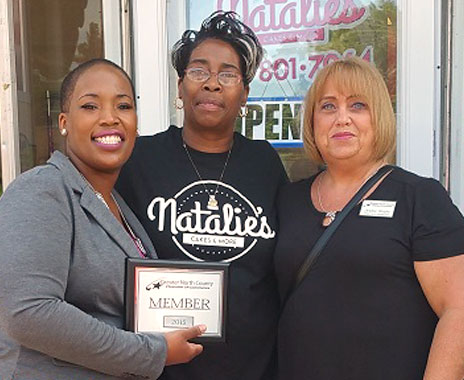For all too many young workers hoping for a bright future, the employment system often seems skewed against them. They want their chance at the American dream, but getting there can be a nightmare for the disadvantaged, the under-represented, and those simply hoping for a fair start.
Some major restaurant brands and other retailers hope to change that.
Starbucks joined foodservice brands such as Taco Bell and a variety of other retailers in the formation of the 100,000 Opportunities Initiative, which has the goal of being the nation’s largest employer-led coalition committed to creating pathways to meaningful employment for America’s young people. The coalition has the collective goal of engaging at least 100,000 “opportunity youth”—16–24 year olds who face systemic barriers to jobs and education—by 2018 through apprenticeships, internships, training programs, and both part-time and full-time jobs. The coalition also offers young workers the chance to further their education.
In addition, this month Starbucks announced it will open stores in 15 diverse, low-to-medium income urban communities across the U.S., with at least five stores expected to open in 2016. These stores will be a key strategy in achieving the company’s goal of hiring 10,000 opportunity youth.
Starbucks will open the first of these stores in Ferguson, Missouri; Chicago’s south side; the Jamaica neighborhood in Queens, New York; and Milwaukee, Wisconsin, and it will remodel its store in Phoenix. According to Starbucks, each of these locations will have an onsite training space where young people can learn valuable customer service and retail skills, based on the same world-class training Starbucks partners (employees) receive.
Starbucks will hire on average 20–25 partners per store from the local community, providing a new pathway to opportunity through training and development, meaningful career options, and industry-leading benefits.
The restaurant industry has long been an entry point for those seeking their first job, says Christin Fernandez, director of media relations and public affairs at the National Restaurant Association.
“These initiatives are extremely important not only to foster growth within the restaurant industry, but also the future of our workforce,” Fernandez says. “About 41 percent of all restaurant employees are under the age of 25, and restaurants truly offer a first step on a pathway to success. In fact, 80 percent of restaurant owners/managers started in entry-level positions.”
For some communities, “getting a Starbucks” can mean that their neighborhood is improving. Many urban neighborhoods and rural towns don’t have ready access to the same food options as other communities. Factor in a dearth of grocery stores and the result is a “food desert”; residents must travel to other areas for access to food and other basic needs. It is these communities that are most in need of retail participation.
For example, Ferguson is still recovering from rioting and civil unrest from last summer’s confrontations between police and demonstrators. Starbucks is opening a store in the West Florissant neighborhood of Ferguson and will partner with local women and minority-owned businesses such as Natalie’s Cakes & More, owned by local entrepreneur Natalie DuBose. Her store was damaged during the unrest.
Starbucks will carry Natalie’s Signature Caramel Cake in its Ferguson store when it opens next summer, and the cakes will also be available in five Starbucks units in the surrounding St. Louis area beginning in August.
“By deepening our investments in communities like Ferguson, we have the opportunity to create a pathway to employment for hundreds of young people and help fuel a pipeline of new talent for companies like ours,” says Blair Taylor, Starbucks’ chief community officer and chair of the Starbucks Foundation. “That’s good for business and good for the communities we serve.”
Taco Bell considers young people the core of its brand. About 55 percent of Taco Bell’s team members are between the ages of 16 and 24, and the company plans on hiring an additional 1.5 million youth in the next 10 years system-wide. Offering disadvantaged young people the chance to improve their life is a core component of these initiatives.
“This is not the first time we’ve put a stake in the ground in supporting youth employment and opportunities beyond just employment,” says Brian Niccol, CEO of Taco Bell. “We’re using the power of our scale to move the needle when it comes to connecting opportunity youth with meaningful opportunities, ranging from internships, apprenticeships, jobs, and educational and service opportunities.”
Initiatives like these are great in the short run but need to have a long-term goal to make real changes, says Gerry Fernandez, president of the Multicultural Foodservice & Hospitality Alliance.
“It’s a start, but honestly, I expected more retailers to be engaged,” Fernandez says. “However, hiring from this age group and demographic is not going to be easy. It will require some heavy lifting from both sides to manage expectations.
“If it’s to be sustainable, it should provide a career trajectory for these new workers,” he adds. “It could even provide a chance to eventually become a franchisee. It’s good to have more workers in the pool.”



